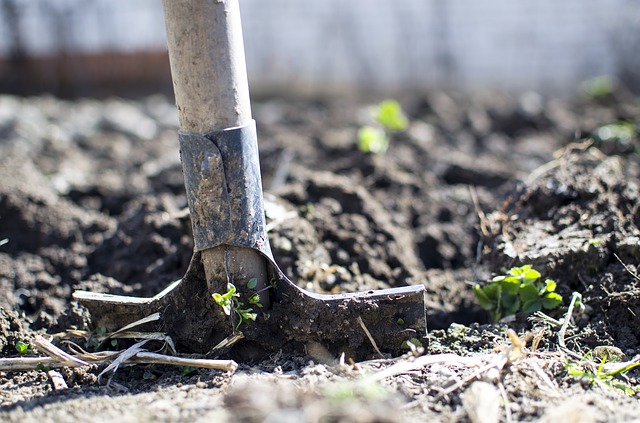“Put off…the old man, which is corrupt…be renewed in the spirit of your mind…put on the new man, which after God is created in righteousness and true holiness” (Ephesians 4:22-24)
In Alma 24, the converted Lamanites, now known as Anti-Nephi-Lehies, bring the above scripture to life. The king expresses this group’s collective praise to God that “he hath forgiven us of those our many sins and murders which we have committed, and taken away the guilt from our hearts, through the merits of his Son” (verse 10).
The king then expresses fear as to how God might react should they ever go back to their former ways of killing and murdering. Based on this, the entire group comes to a collective decision:
“When the king had made an end of these sayings, and all the people were assembled together, they took their swords, and all the weapons which were used for the shedding of man’s blood, and they did bury them up deep in the earth. And this they did, it being in their view a testimony to God, and also to men, that they never would use weapons again for the shedding of man’s blood.” (Alma 24:17-18)
For the Anti-Nephi-Lehies, murder had been their “thing.” They surely had committed many other sins, but this was the one that jumped out for them, the one thing that they wanted to make sure they never went back to. So, as a testimony before God that they were done with this sin for good, they literally buried it in the earth, never to be dug up again.
It’s probably safe to say that most of us have not engaged in murder in our lifetimes, but we surely haven’t been perfect either. When we gave our lives to the Lord, perhaps there was one type of sin in particular that stuck out above the rest as something we were especially grateful to God to be forgiven of. If so, what steps were taken to “bury” this behavior? Is it still buried today?
How about other behaviors that characterized our “old man”? Are they buried, or do they still show up from time to time?
The Holy Ghost, which we received after we were baptized, by the laying on of hands by the ministry, places within us the desire to change our lives to be the servants God wants us to be. If we follow the direction of the Holy Ghost, then the old man will stay buried. However, as humans, we can easily be tempted, and then the old man can resurface. It’s for times like these that identifying specific steps for ourselves — like the Anti-Nephi-Lehies burying their weapons — can help minimize the temptation to return to past behaviors that God has already forgiven us for.
What would be similar to burying the weapons for us? It could include any of the following:
- Disposing of items which we have used for sinful purposes
- No longer going places where we have engaged in sinful behavior
- Disassociating ourselves from people who have been our “partners in crime”
- Filling our time with activities — whether related to church or helping others or just having fun in a non-sinful way — such that we no longer have time for sinful activities
- Pairing up with an accountability partner so that each keeps the other accountable to not go back to the “old man” behaviors
Burying the old man not only keeps us on the straight and narrow path that leads to God’s kingdom, but it also allows us to present our own lives as evidence of what God can do. When the attacking Lamanites saw that the Anti-Nephi-Lehies were willing to die rather than go back to their former behavior of fighting with their swords, the battle stopped, and over a thousand of the Lamanites were converted. The people who know you will know your conversion is real if you do your best to bury the old man and live the life of the new man who God has created in righteousness and true holiness.

This article has undergone ministry review and approval.





0 Comments